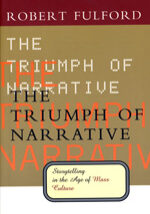In 701 B.C. the Assyrian empire was in its ascendancy. It had already vanquished the kingdom of Israel to the north including the capital at Samaria. It then prepared an assault on Judah and its capital at Jerusalem.
But in one of those significant events that changes the course of world history, Assyria was repelled. Jerusalem was saved until 586 B.C. when the Babylonians sacked the city, forcing its leadership class into exile.
Henry Aubin, in a major feat of scholarship, determines that Jerusalem was aided by a Kushite army from Africa which had marched northeast from the Nile valley. While the Bible attributes the Assyrian retreat to an angel and secular commentators cite pestilence, Aubin, in a meticulously documented work, demonstrates that an alliance with the African nation of Kush bolstered Jerusalem’s defences.
Kush, also known as Nubia, was located in what is now southern Egypt and northern Sudan. A monarchy that existed for more than 1000 years, from 900 B.C. to A.D. 350, Kushites held sway over Egypt from 712 B.C. to about 660 B.C. Of Egypt’s 31 dynasties, this, the 25th Dynasty, is the only one that all scholars agree, was black.
The commander of the Kushite expeditionary force was Taharqa (or as the Bible calls him Tirhakah). This Kushite prince, who had his own interests in halting Assyrian expansion, likely caught the aggressors by surprise as they prepared their siege of Jerusalem.
Aubin offers a thrilling military history and a stirring political analysis of the ancient world. He also sees the event as influential over the centuries.
The Kushite rescue of the Hebrew kingdom of Judah enabled the fragile, war-ravaged state to endure, to nurse itself back to economic and demographic health, and allowed the Hebrew religion, Yahwism, to evolve within the next several centuries into Judaism. Thus emerged the monotheistic trunk supporting Christianity and Islam.

“Fulford does what he does with flair; his arabesques are worth re-reading and remembering.”
The Globe and Mail
“Lively and frequently witty…greatly enjoyable”
The Toronto Star
“An entertaining read…Fulford spots narrative threads in odd and fascinating places.”
The Independent Weekly (Toronto)
“Fulford is one of the few intellectuals as comfortable with Elmore Leonard as with Saul Bellow…a book large in soul, insight, and importance. Every reader, and every student of narrative in all its Splendor and vast multimedia reach, ought to have a copy.”
The Daily News (Halifax)
Broadway/RH US/2001
Anansi/Stoddart CAN/1999
Fides/French/2001
THE TRIUMPH OF NARRATIVE
Story Telling in the Age of Mass Culture
“Narrative is the juncture where facts and feelings meet,” writes Robert Fulford, an eminent author on cultural topics. “It is the bundle in which we wrap truth, hope, and dread. It is how we explain, how we teach, how we entertain ourselves; and how we often do all three at once.”
In his compelling book, Robert Fulford argues that narrative is central to civilization and that we package our understanding of life and history as a series of narratives.
Into this vibrant mix he includes sexual gossip, urban legends, and forms of street literature. There are insightful discussions of the great works from the Book of Job, to the tales of Sir Walter Scott, to the contemporary novels of Saul Bellow.
Important are films, television, journalism, and the master narratives of great historians like Gibbon and Parkman. But narrative also includes the private lies people tell each other to make their lives bearable.
The Triumph of Narrative was commissioned for the prestigious Massey Lecture Series.